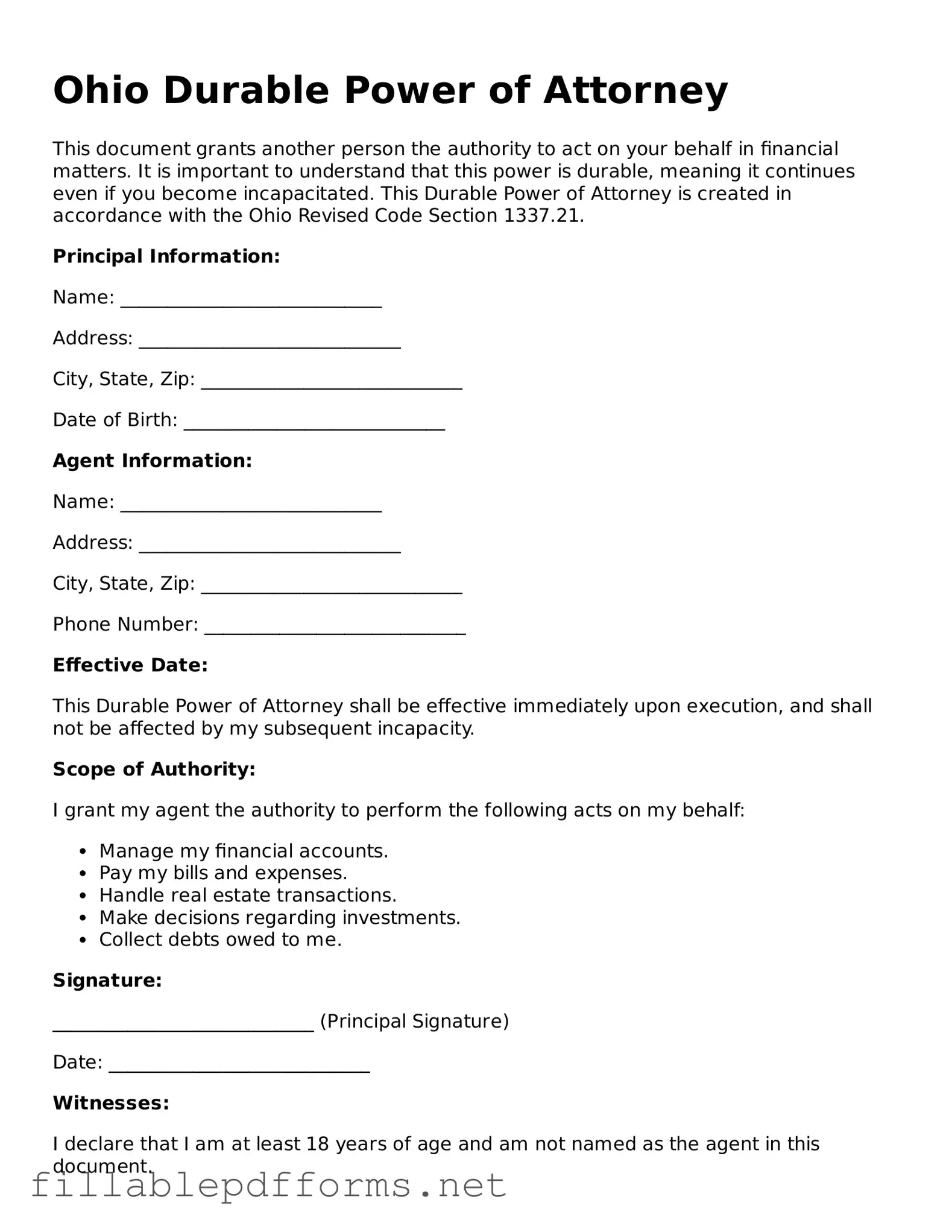Attorney-Verified Durable Power of Attorney Form for Ohio State
The Ohio Durable Power of Attorney form is a legal document that allows an individual, known as the principal, to designate another person, referred to as the agent, to make decisions on their behalf. This form remains effective even if the principal becomes incapacitated, ensuring that their wishes are honored during difficult times. Understanding its importance can help individuals prepare for the future and protect their interests.
Launch Editor Here

Attorney-Verified Durable Power of Attorney Form for Ohio State
Launch Editor Here

Launch Editor Here
or
▼ Durable Power of Attorney PDF
Almost there — finish the form
Complete Durable Power of Attorney online fast — no printing, no scanning.